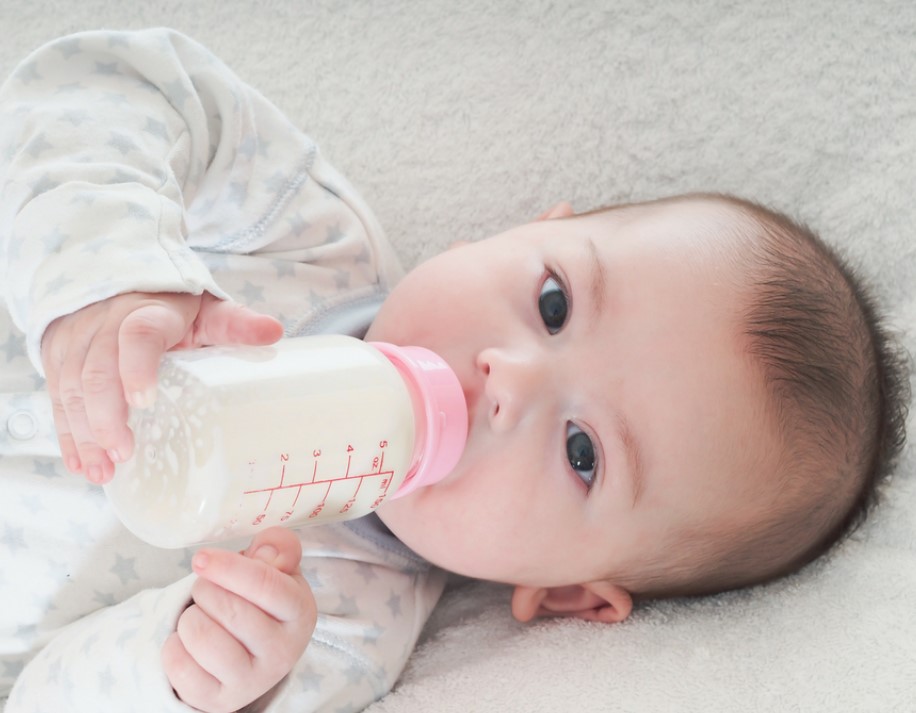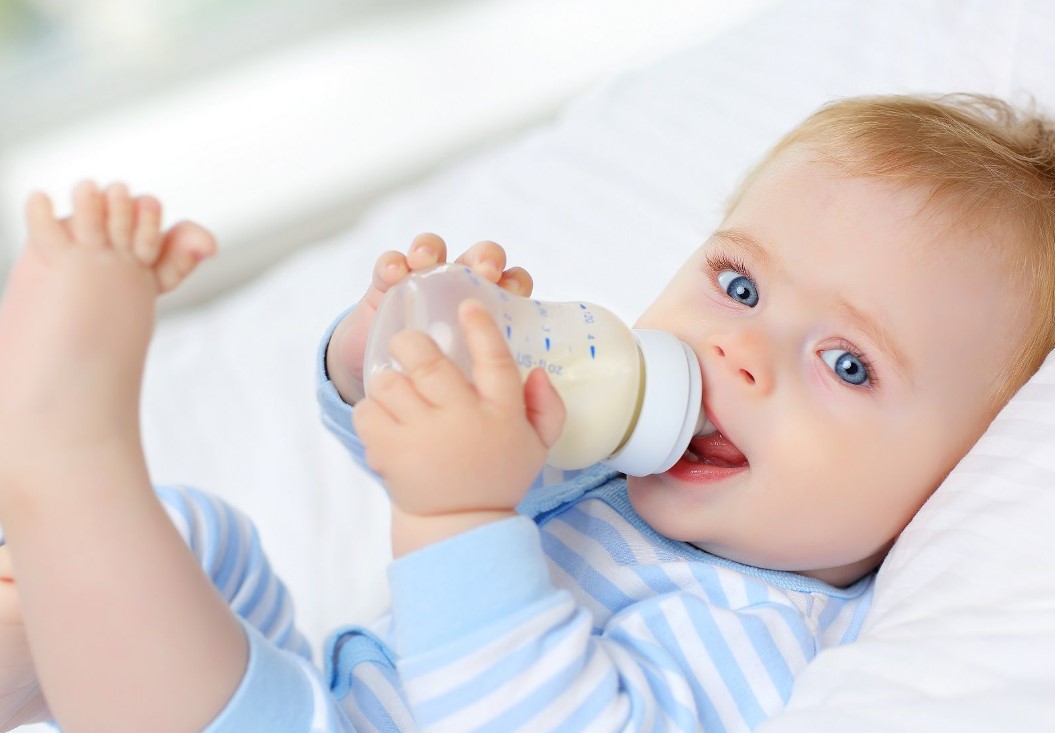When Can Babies Hold Their Own Bottle? Having a baby may make you wonder when can babies hold their own bottle. Luckily, there are many signs that your baby is ready.
Signs that your baby is ready
Having your baby hold their own bottle is a big milestone. It is adorable, but it also signals that your baby is becoming independent. It is important to watch your baby’s development at this time. Typically, it will take a baby about six months to begin holding a bottle.
Some babies are ready to hold their own bottle at six months, but most babies don’t start until seven or eight months. There are also some other motor skills that you can watch for that signal your baby is ready.
Babies who are ready to hold a bottle should be able to hold the bottle with both hands. Some babies may need help putting the nipple back in the mouth.
Motor skills
A good way to check if your baby is developing motor skills normally is by watching how he or she handles objects. If you notice your baby has problems grasping an object, you can try transferring it from one hand to the other.
The most important skill to develop when your baby is holding his own bottle is stabilizing himself. This is a fine motor skill, and it requires a lot of strength and coordination. Holding a bottle is a complex skill, and it takes practice. You can help your baby develop this skill by gently placing his or her hands on the bottle during feeding times.
Personality and preferences
During the 1950s and 1960s, psychology research was dominated by behaviorists who argued that infants need love, companionship and comfort. A paradigm shift occurred when researchers began to synthesize clinical observations of orphaned and hospitalized children. This led to a better understanding of the social relationships that take place in early childhood.
One of the most important early social relationships is the one between the infant and the caregiver. Studies show that an infant will attach to a caregiver, regardless of the quality of the care. This attachment is a crucial part of infant survival. In fact, it is critical for programming a child’s cognitive abilities. A secure attachment involves a preference for the primary caregiver. An infant who is securely attached is less aggressive and anxious, has better social skills and is more likely to enjoy positive romantic relationships.
Precautions

Introducing a baby to feeding bottles can be an exciting milestone in your child’s development, but there are precautions to be taken to prevent the dangers of baby bottle choking. The American Academy of Pediatrics recommends that bottles be phased out between the first and second year of a child’s life. If you want to learn about How Long is Baby Formula Good For, you can click on it for answers and more info.
When your baby is ready to hold their own bottle, the first step is to sit them on a flat surface. They should be in a slightly arched position to mimic the natural breastfeeding position. You should also encourage tummy time, which helps build core strength.
You should also consider how your baby feels about the bottle and the size of the bottle. If they feel overwhelmed by the weight of the bottle, they may not want to hold it.
Signs that your baby shouldn’t hold their own bottle
Keeping an eye on your baby’s bottle is essential if you want to make sure they are getting the full amount of milk. A leaky baby bottle can cause a mess and even cause tooth decay. This is one of the reasons why it is a good idea to have a BPA-free silicone bottle band on your baby’s bottle.
Some babies will start holding their own bottle as early as 6 months. However, there are plenty of babies who don’t reach this milestone until a few months later. This doesn’t mean they aren’t smart. It just means they may not be ready for it yet.
A bottle can be a great way to bond with your baby. However, it’s important to be careful and to stop the bottle when it’s time to go.




